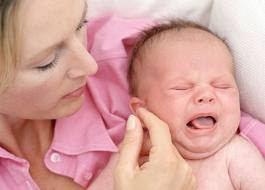GladChild: Many advices or myth about the baby who once provided the parents can no longer practiced today. Some facts are now considered outdated:
1. Baby sleeping soundly in a quiet and dark room
In fact, the children now sleep easy even against the backdrop of noise and little light. Plus, if the baby is doing before they sleep, usually they will easily fall asleep with a wide variety of situations.
2. When the baby has a fever, compress with alcohol to
reduce fever
In fact, giving a compress on the infants with alcohol would not reduce fever. It is not even safe because alcohol can be absorbed through the skin.
3. Letting your baby stand or jumping on your lap can shorten the baby's feet
In fact, the baby will not be shortened legs. That's really a myth. In contrast, babies learn to balance their weight by trying to find the center of gravity. So, let your baby stand up and jumping on your lap would be fun and help its development.
4. Listening to classical music can increase the IQ of babies
In fact music can enrich the life of the baby, but no definitive studies that listening to classical music can encourage brain development.
5. Letting a baby cry, preventing the baby becomes spoiled.
In fact babies 4 months of age had only a few ways to cry. They know when they will whine and spoiled, and nothing else. So, pick up the baby cry while helping them understand that parents will always be there when the baby needs them.
6. It should not be immunized as a baby fever
In fact, a small fever will not decrease the immune response in infants or increase the risk of overreaction from the immunization.
7. Do not provide sun protection cream in infants under the age of 6 months
In fact, the risk of skin cancer can happen to the sun-exposed skin and your baby is also at risk. It would be good for the baby away from the sun at certain hours. By giving sun protection cream containing SPF 15, you will protect it from the risk of skin cancer. Apply a small amount on face and hands of babies.
8. It is important to keep baby bottles and pacifiers kept sterile
You only need to sterilize bottles and nipples when they are removed from the box. After that, wash it with soap and water is sufficient for infants exposed to more bacteria from their environment than from a bottle that they use.



















